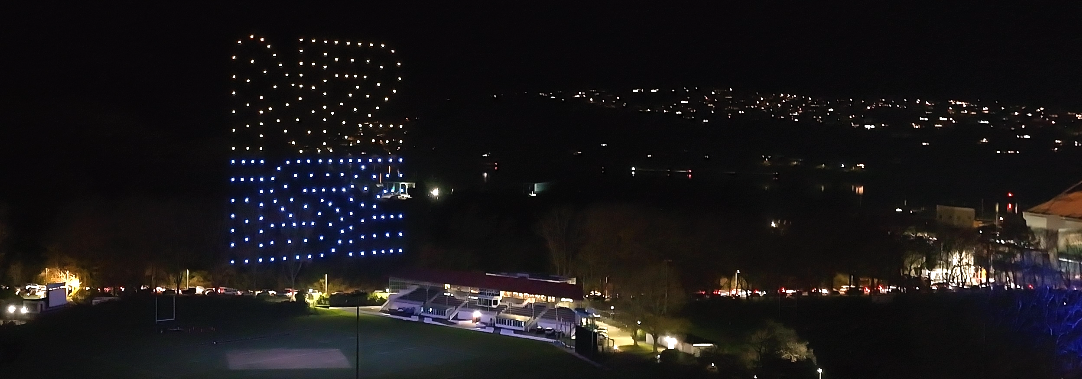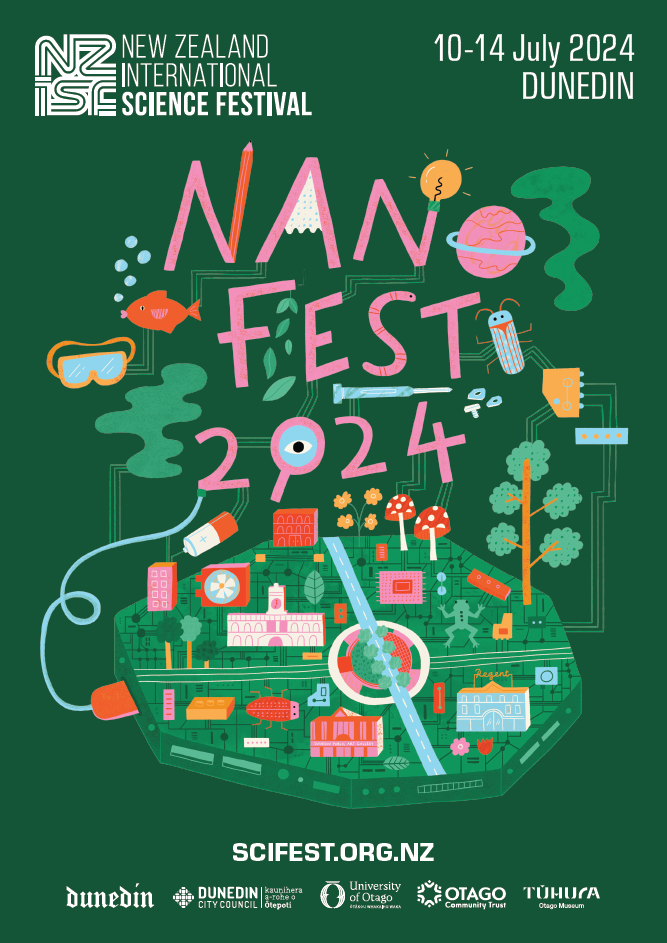
Drone technology is changing how conservationists do their work, presenting novel research methods and new perspectives.
From wildlife tracking and landscape-level monitoring to population counts and behaviour observation, drone technology is changing how conservationists do their work, presenting novel research methods and new perspectives. Our panel will discuss what drones have allowed them to do that was previously not possible, and talk about how drone technology might further support their fields of study in the future.
The adjoining Dish Cafe will be open before and after this event for coffee and drinks. Nibbles provided after the talk to encourage the conversation to continue.
Nano Fest in NZSL
This talk will be interpreted live. We are thrilled to have NZSL interpreted talks and events at this year's Nano Fest and welcome Deaf community members to attend - see the full list of NanoFest events featuring NZSL interpretation below. Proudly supported by NZISF and STEM Communication Trust.
Panel:

Jake Edwards-Ingle - University of Otago, Department of Marine Science
Mike Hilton - University of Otago, School of Geography
Jo Monks - University of Otago, Department of Zoology
Chris Muller - Altitude Conservation
Moderator: Professor Dame Juliet Gerrard
Panellist Bios:
Jake Edwards-Ingle is a Master of Marine Science student from the University of Otago. His thesis aims to investigate the distribution and predation risk of juvenile blacktip reef sharks within nursery areas in Mo’orea, French Polynesia. These nursery areas are crucial habitats that support the growth, development, and recruitment of young sharks. Blacktip reef sharks, like most coastal tropical shark species, are threatened with extinction. Hence, the more we know about how they use nursery areas, the more effective our conservation efforts can be. Traditional methods for gaining this information can be inaccurate or cause harm to the sharks. However by using a drone to gain this information, we can avoid these problems as the drone is non-invasive and can not be detected by sharks when flown at a certain altitude.
Assoc Professor Mike Hilton, MNZM, is interested in the geomorphology and ecology of coastal landscapes shaped by wind. Which means he's an 'aeolian bio-geomorphologist'. He teaches geomorphology, coastal management and environmental management, with a particular interest in ecological restoration and the dynamics of active dune systems. He commenced a collaboration with the Department of Conservation in 1998, with a focus on the restoration of Rakiura - Stewart Island dune systems, the world's largest such program. For the last 7-years he has maintained a research program in the Maldives with the goal of understanding lagoon island formation and is currently coordinating a national state of environment assessment of New Zealand's dune systems.
Jo Monks is a conservation biologist working on a range of applied ecological issues. Her background is in herpetology (the study of reptiles and amphibians) and behavioural ecology, but she now works on a range of terrestrial fauna, including bats, birds and invertebrates. Jo’s current research involves conservation management in alpine ecosystems, understanding impacts of invasive predators on native lizards and invertebrates and examining impacts of climate change on native terrestrial fauna.
Chris Muller is a field biologist with many years’ experience tracking wildlife. As part of his PhD research on endangered yellow-eyed penguins he developed the Drone Ranger, an aerial tracking system utilising new technology to improve the efficiency of locating cryptic penguin nests on a rugged and isolated sub-Antarctic island. He is now the director of Altitude Conservation, a wildlife tech company dedicated to providing innovative technology solutions to assist wildlife research and management, and to contribute to saving the world’s endangered species.
Moderator: Professor Dame Juliet Gerrard has held the position of Chief Science Advisor since July 2018. Juliet’s vision for the role centres around four qualities: rigour, inclusivity, transparency and accessibility. She aims to create a trusted bridge between science, society and government. Juliet is also a Professor at the University of Auckland. Her academic research is in protein biochemistry, investigating protein-protein interactions and applied research in the food industry.
NanoFest in NZSL: List of NZSL interpreted events
Disaster Resilience & Preparedness
Drones for Conservation
Why the little things are worth looking at: A conversation with Giselle Clarkson
He kōrero whetū – let’s talk stars
Physics Show




